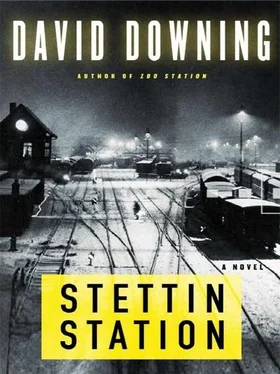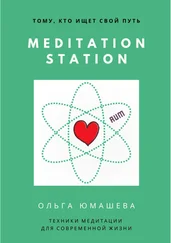David Downing - Stettin Station
Здесь есть возможность читать онлайн «David Downing - Stettin Station» весь текст электронной книги совершенно бесплатно (целиком полную версию без сокращений). В некоторых случаях можно слушать аудио, скачать через торрент в формате fb2 и присутствует краткое содержание. Жанр: Шпионский детектив, на английском языке. Описание произведения, (предисловие) а так же отзывы посетителей доступны на портале библиотеки ЛибКат.
- Название:Stettin Station
- Автор:
- Жанр:
- Год:неизвестен
- ISBN:нет данных
- Рейтинг книги:3 / 5. Голосов: 1
-
Избранное:Добавить в избранное
- Отзывы:
-
Ваша оценка:
- 60
- 1
- 2
- 3
- 4
- 5
Stettin Station: краткое содержание, описание и аннотация
Предлагаем к чтению аннотацию, описание, краткое содержание или предисловие (зависит от того, что написал сам автор книги «Stettin Station»). Если вы не нашли необходимую информацию о книге — напишите в комментариях, мы постараемся отыскать её.
Stettin Station — читать онлайн бесплатно полную книгу (весь текст) целиком
Ниже представлен текст книги, разбитый по страницам. Система сохранения места последней прочитанной страницы, позволяет с удобством читать онлайн бесплатно книгу «Stettin Station», без необходимости каждый раз заново искать на чём Вы остановились. Поставьте закладку, и сможете в любой момент перейти на страницу, на которой закончили чтение.
Интервал:
Закладка:
There was nothing else for it – she had to get more make-up. Tomorrow was Christmas Eve, and the theatrical suppliers would probably close for several days. She couldn't afford to wait. That same evening, Russell was lying on his bed when Felix arrived with new papers. The old ones were still valid, but now complemented by others attesting to his position as a high-ranking bureaucrat in Goering's organisation for the economic exploitation of the East, the Wirtschaftsfuhrungsstab Ost. 'You'll only have to use these if the Gestapo raid the hotel, and as far as we know, there's no reason why they should. If they do, you should tell them that you're in Riga to organise supplies for the planned concentration camp at Kaiserwald – ordering the timber for the barracks, the wire for the perimeter, that sort of thing. But you fell ill on the train, and you're recuperating here. Hence the meals in your room, and the fact that you don't go out. That's what the other guests have been told, by the way. Those that asked, that is. Once the word gets round that you work for Goering, everyone will give you a wide berth. People are very nervous at the moment.'
'I heard gunfire last night,' Russell said, as he examined the documents. 'From the ghetto,' Felix explained. 'They've crammed all the Jews into a few hundred square metres, and already killed thousands of them, but they're still not satisfied. Some of the bastards go in at night, as if they're out on a hunting party. Anyone who gets in their way, they just shoot them.' 'Have any trains full of Jews come from the Reich?'
'Three, I think. One shipment was just taken out to Rumbula and shot. The others were led to the ghetto and given the houses of those locals who were shot earlier. There doesn't seem any rhyme or reason to it.'
'What's Rumbula?'
'The Rumbula Forest. It's about five kilometres from the city. Near enough for a forced march, and nice sandy soil for digging. They must have shot over twenty thousand in the last few weeks. One child who escaped said that the earth was still moving from all the people who'd been buried alive.'
Russell shook his head, closed his eyes and gripped the bridge of his nose between thumb and forefinger. 'Is there any resistance?' he asked eventually.
'From the Jews? No. They have nothing to fight with. And we're not in much better shape. Our organisation is still intact, and we're strong in the docks, but we have no weapons, and no allies to speak of.' Felix managed a rueful smile. 'When the NKVD left in June they killed almost everyone that they'd locked up over the previous year. That helped us, of course, because many of those people could have betrayed us to the Nazis. But it also caused a rift – to put it mildly – between us and the nationalists. There won't be a united front here for a very long time.'
'I see.'
'I used to be a docker,' Felix volunteered. 'But once you pass fifty the work gets difficult, particularly in winter. And my parents left me this hotel.'
'Whose ships are still coming to Riga?' Russell asked.
'The Swedes are the only neutrals who can get here.'
'What do they bring? What's left to trade?'
'Lots of things. Coming in, it's mostly luxury items. If you walked the streets you might think the rich had fled, but they haven't. They're just hunkered down in their mansions, waiting the war out, and they still want their nice soap, their proper coffee, their good cigars. They're not going to get them from Germany, are they?'
'I suppose not.'
'Going out, it's mostly processed foods.'
Remembering Jens's account of chronic shortages, Russell found that surprising. But only for a moment – the Germans needed something to exchange for all that iron ore and all those ball bearings.
After Felix was gone, Russell's mind kept returning to the mental picture of a shifting forest floor, and the last terrifying moments of those who were doing the shifting. His horror grew no less, but there was some compensation in the sheer power of the image, and the way it might be used to arouse the conscience of the outside world. He got out his paper and pencil and began writing it out, hammering another journalistic nail in what he fervently hoped would be the Nazis' coffin. If he ever reached Sweden, he wanted the story ready for printing.
Work also took his mind off other things, like a son betrayed and a love left behind.
Russell had used the one in Potsdam Station, but Effi's recent experience with station toilets was hardly encouraging, so she chose the Wertheim's on Leipziger Strasse for her transformation. She knew exactly where the ladies' room was, and the department store was only a few minutes' walk from the theatrical suppliers she intended to visit. Her one big fear was a chance encounter with her shopping-mad sister, but Effi could hardly imagine Zarah spending Christmas Eve afternoon with anyone but Lothar.
A week ago that thought would have reduced her to tears. So she must be getting stronger.
First she had to get to Wertheim's. She would have to leave Prinz-Eugen-Strasse in daylight, without make-up, and with every chance of running into someone on the stairs. It was crazy, but there was no way round it, and she would just have to do what she could. A little dust and household grime to give a wrinkled look around the eyes, a piece of sticking plaster across her upper lip to disguise the shape of her mouth. A hat pulled down to her eyes, a scarf pulled up across the lower lip, a pair of reading glasses. It was a pity it wasn't snowing, but it was cold enough to justify a lot of covering up.
The journey went well. She met no one on the stairs, no one on the street or in the U-Bahn to Leipziger Strasse. The walk to Wertheim's took only a few minutes, the long climb to the secluded toilets on the top floor rather longer – the lifts were all out of order. Ensconced in a cubicle, she unpacked the Reichfrauenschaft uniform. The blue-black jacket and skirt went on over the correct white blouse that she was already wearing, and she placed the matching fedora on her rigorously pulled-back hair at a slightly jaunty angle. She wondered about the sticking plaster, and finally decided that it detracted from the uniform's authority.
She was now a member of the National Socialist Women's Organisation National Leadership. Hardly someone to be trifled with.
Walking to the theatrical suppliers, it suddenly occurred to her that it might have been bombed, or closed down for some other reason. Had she gone to all this trouble, put herself at all this risk, for nothing?
There were lights in the shop window. She was just ten metres away from the door when an actress she knew almost pranced out onto the pavement and turned towards her. The woman gave Effi a single glance, and quickly averted her eyes from the stern expression and its accompanying uniform.
Effi let herself into the shop. There were two women behind the counter, both around forty. They looked like the keenest of filmgoers, but she didn't recognise them from her previous visits. One disappeared into a back room as the other offered a cautious smile of greeting. The uniform was earning its keep.
'I have a list of powders and creams,' Effi began, handing the sheet of paper over. 'There's quite a lot, I'm afraid. It hasn't been officially announced yet, but the Berlin Bund Deutscher Madel are putting on a special production of Tristan und Isolde in the new year. It's possible that the Fuhrer will attend. If his military duties permit, of course.'
'Of course,' the woman echoed. She began filling the order, plucking boxes and tubes from various drawers and cabinets.
Effi stared at the photographs covering a large part of the wall behind the counter, each one signed by the star in question. After the war she'd come back with her own.
The woman was checking the items through. 'I think that's everything,' the woman said, completing her check. She looked up at Effi and her face seemed to change.
Читать дальшеИнтервал:
Закладка:
Похожие книги на «Stettin Station»
Представляем Вашему вниманию похожие книги на «Stettin Station» списком для выбора. Мы отобрали схожую по названию и смыслу литературу в надежде предоставить читателям больше вариантов отыскать новые, интересные, ещё непрочитанные произведения.
Обсуждение, отзывы о книге «Stettin Station» и просто собственные мнения читателей. Оставьте ваши комментарии, напишите, что Вы думаете о произведении, его смысле или главных героях. Укажите что конкретно понравилось, а что нет, и почему Вы так считаете.












